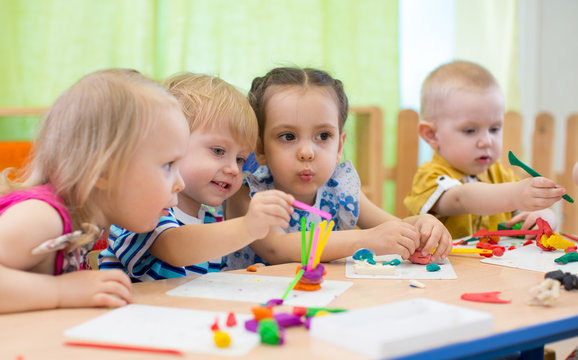Benefits of Arts and Crafts During Early Childhood Development. Arts and crafts have always been an important aspect of early childhood education. Through craft activities, preschoolers can explore their imagination, enhance fine motor skills, develop cognitive abilities, and express themselves creatively. Plus, since most preschool crafts require everyday materials that aren’t hard to find, it doesn’t take much to get the creative juices flowing.
Below are 6 reasons why art and crafts are so important for child development:
1. Enhancing fine motor skills
Craft activities often involve using small materials such as beads, scissors, and paintbrushes, which require precise hand movements. By manipulating these materials, preschoolers can improve their fine motor skills, including hand-eye coordination, finger dexterity, and grip strength. These skills are crucial for tasks like writing, tying shoelaces, and buttoning clothes.
2. Encouraging creativity and imagination
Arts and crafts provide an outlet for children to unleash their creativity and imagination. When engaged in open-ended projects, such as painting or building with blocks, preschoolers have the freedom to explore their ideas and express themselves. This process fosters critical thinking skills, problem-solving abilities, and the ability to think outside the box.
3. Promoting self-expression
Crafting allows children to communicate their thoughts, feelings, and experiences in a non-verbal way. Through their creations, they can express their emotions, tell stories, and share their unique perspectives. This promotes self-expression, emotional development, and a sense of self-identity.
4. Developing cognitive skills
Engaging in arts and crafts activities stimulates various cognitive skills in preschoolers. From recognizing colors and shapes to understanding patterns and sequences, crafting promotes cognitive development. It also enhances visual-spatial awareness, mathematical thinking, and logical reasoning, laying a solid foundation for academic success.
5. Boosting confidence and self-esteem
Completing a craft project, whether it’s a simple drawing or a more complex sculpture, gives children a sense of accomplishment and pride in their abilities. This boosts their self-esteem, confidence, and belief in their own capabilities. Additionally, positive feedback and encouragement from parents, caregivers, and teachers during the crafting process further enhance a child’s self-confidence.
6. Fostering social skills
Crafting can be a collaborative activity, providing opportunities for children to engage in social interactions and develop important social skills. When working on group projects, preschoolers learn to take turns, cooperate, share materials, and communicate effectively. These skills are essential for building friendships, resolving conflicts, and thriving in social settings.

